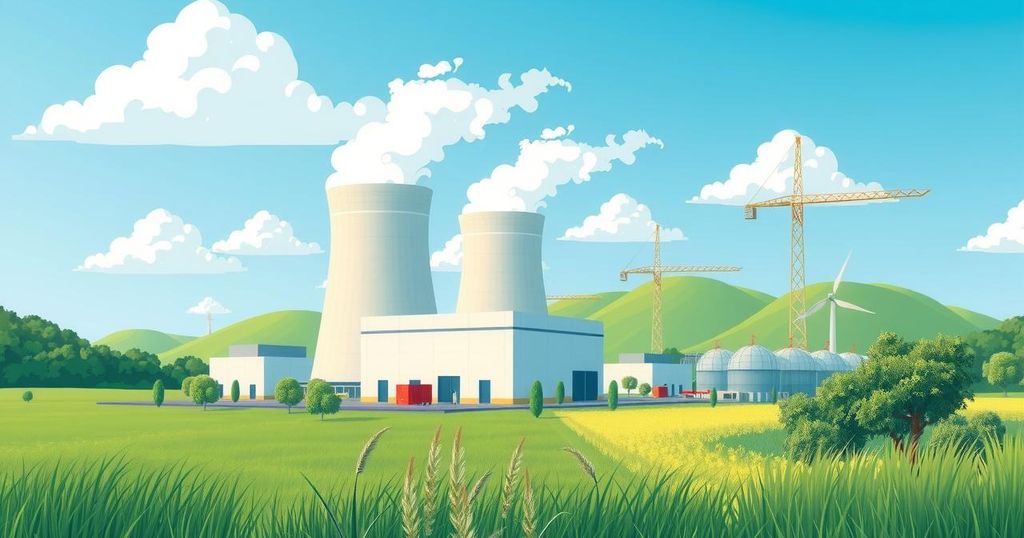Companies
ANGRA 1, ANGRA 2, ANGRA DOS REIS, BRAZIL, ELETRONUCLEAR, ENERGY, GETÚLIO VARGAS FOUNDATION, GETULIO VARGAS FOUNDATION, INDUSTRY, INFRASTRUCTURE, LYCURGO, MINING, NATIONAL BANK FOR ECONOMIC AND SOCIAL DEVELOPMENT, NATIONAL ENERGY POLICY COUNCIL, RAUL LYCURGO, RENEWABLE ENERGY, SIEMENS, SOUTH AMERICA
Isaac Bennett
0 Comments
Economic Benefits of Completion for the Angra 3 Nuclear Project in Brazil
Raul Lycurgo, president of Eletronuclear, highlighted the economic advantages of completing the Angra 3 nuclear project before the National Energy Policy Council. The project, which has encountered multiple delays, could create thousands of jobs and enhance electricity supply. A government decision on its future is crucial, with substantial financial implications tied to the completion versus abandonment of the project.
Raul Lycurgo, the president of Eletronuclear, articulated the potential economic benefits of the Angra 3 nuclear project ahead of a National Energy Policy Council meeting. The unit aims to bolster Brazil’s electricity supply and enhance national development. Currently, Brazil operates two reactors, Angra 1 and Angra 2, accounting for approximately 3% of the country’s electricity needs.
The Angra 3 project, which began in 1984, has faced numerous interruptions, including a halt in 2015 when construction reached 65% completion due to a corruption investigation. After a revival in November 2022, construction paused again in April 2023 due to disputes regarding environmental compensations and planning permissions. The government is yet to reach a decision on proceeding with the project.
Eletronuclear estimates that abandoning Angra 3 could cost approximately BRL21 billion (USD3.7 billion), equating to the completion costs. The completed unit would provide sufficient power for 4.5 million people, utilizing previously purchased equipment and nuclear fuel.
In his remarks on Eletronuclear’s website, Lycurgo emphasized that Angra 3 transcends mere power generation; it promises social development, massive job creation, and economic stimulation. Citing a study from the Getúlio Vargas Foundation, he noted that each dollar invested in nuclear energy yields two dollars in GDP.
Lycurgo projected that Angra 3 could create 7,000 direct jobs along with tens of thousands of indirect jobs throughout Brazil. He stated that the project would yield a competitive tariff and provide stable, clean energy, reducing reliance on fossil fuel plants with fluctuating costs. The completion of Angra 3 is viewed as pivotal for both the energy sector and broader social transformations in Brazil.
The National Energy Policy Council decided to deliberate further on the project, with the final decision postponed until the next meeting, according to a Reuters update.
The Angra 3 nuclear project presents significant opportunities for Brazil’s economy and energy sector. Helmed by Eletronuclear’s president Raul Lycurgo, the project could create thousands of jobs and stimulate GDP growth significantly. The pending decision from the National Energy Policy Council is crucial, as it will determine whether Brazil proceeds with a project that promises to be a sustainable energy source and a catalyst for economic development.
Original Source: www.world-nuclear-news.org




Post Comment